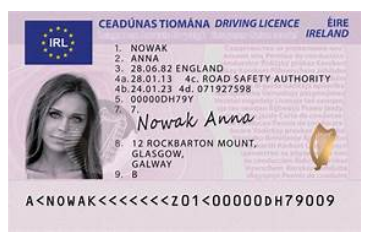
Introduction
If you've passed your driving test in Ireland, you are eligible to apply for a driving licence. This licence can be applied for either online or in person at an NDLS (National Driver Licence Service) centre. The Road Safety Authority (RSA) is responsible for driver licensing, while the National Driver Licence Service (NDLS) manages the processing of applications and renewals.
This guide explains the process for applying for your driving licence, including the eligibility criteria, the application methods, and important details about licence validity, costs, and restrictions on novice drivers.
Rules for Applying for a Driving Licence
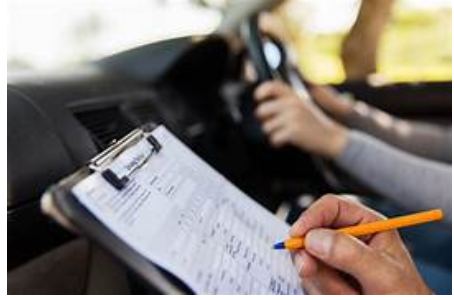
To apply for a driving licence, you must meet the following rules:
- Driving Test:
You must have passed the driving test for the category of vehicle you wish to drive within the last 2 years. If your Certificate of Competency (the document confirming you passed the test) is older than 2 years, you will need to retake the driving test. - Proof of Normal Residence:
To be eligible, you must be normally resident in Ireland, which generally means living in Ireland for at least 185 days per year. If you're an asylum seeker, a temporary residence certificate can be used as proof of normal residence. - Identification:
You must bring proof of identity when applying for your licence.
How to Apply for a Driving Licence
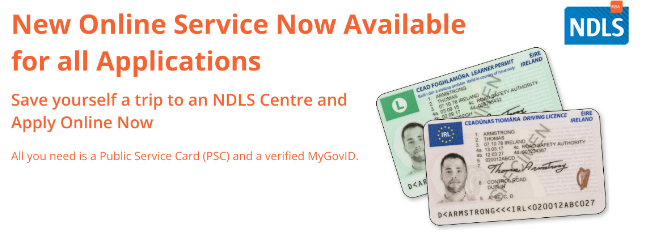
There are two ways to apply for a driving licence in Ireland: online or in person at an NDLS centre.
Apply Online
To apply online, you will need the following:
- Public Services Card (PSC) and a verified MyGovID account.
- Proof of your address if your address is different from the one registered on your PSC.
- Proof of residency (if you are not an EU or EEA citizen).
- A medical report form if required, dated within the last month.
- Application fee of €55 (free for those aged 70 and over).
- Certificate of Professional Competence (CPC), if you are applying as a professional driver.
Once you have gathered all necessary documentation, you can apply directly through the NDLS website. If you are applying online, you will not need to provide your Certificate of Competency (the document that proves you passed your driving test).
For more information on the online application process, visit the NDLS website.
Apply In Person
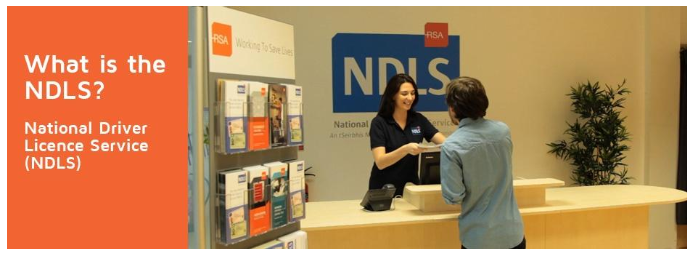
To apply in person, you must book an appointment at an NDLS centre.(booking an appointment). Walk-in services are not available. You will need to bring the following:
- Appropriate Identification:
- A Public Services Card (PSC) is the most common way to verify your details. If you don’t have a PSC, you will need to bring additional documents such as a photo ID, proof of address, and evidence of your PPS number.
- Supporting Documentation:
- Your current or most recent learner permit or driving licence (if you are adding a category or exchanging a foreign licence).
- Any required medical reports or forms (such as a Medical Report Form or Eyesight Report Form).
- Additional documents may be required for professional drivers or those replacing a lost or stolen licence.
- Payment:
The fee for applying in person is €55, unless you are 70 or over, in which case the licence is free. (fee)
When applying in person, your photograph and signature will be captured at the NDLS centre.
How Long is a Driving Licence Valid?
The validity of your driving licence depends on your age and the category of vehicle you are licensed to drive.
- Group 1 Licences (Motorcycles, Cars, and Tractors):
Valid for 10 years if you are under 65 years old. - Group 2 Licences (Buses, Trucks, and Articulated Vehicles):
Valid for 5 years, regardless of your age.
For drivers aged 65 or over, the licence duration is reduced:
- Aged 65-71 years: The licence will expire on or before your 75th birthday.
- Aged 72-74 years: The licence will be valid for 3 years.
- Aged 75 or over: You can apply for a 3-year or 1-year licence, subject to medical certification.
How Much Does a Driving Licence Cost?
The costs for applying for a driving licence are as follows:
|
Licence Type |
Cost |
|---|---|
|
10-year driving licence (for cars/motorcycles) |
€55 |
|
5-year driving licence (for buses/trucks) |
€55 |
|
3-year driving licence |
€35 |
|
1-year driving licence (on medical grounds) |
Free |
|
Adding a category |
€35 |
|
Over 70s |
Free |
Please note, the required medical examinations or eyesight tests are not free of charge.
What Are the Restrictions on Novice Drivers?
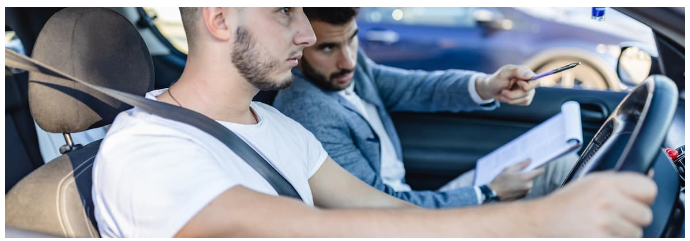
Once you pass your driving test, you will be considered a novice driver for the first 2 years. During this period, you must follow certain restrictions:
- Novice Plates:
You are required to display N-plates on your vehicle for the first 2 years after you get your full licence. For motorcyclists, an N-tabard must be worn. - Penalty Points:
- If you accumulate 12 penalty points in a 3-year period, you will be disqualified from driving for 6 months.
- Learner permit holders and novice drivers in their first 2 years are disqualified if they receive 7 penalty points.
- Drink Driving:
- For learner permit holders and novice drivers in the first 2 years, the drink-driving limit is set at 20mg of alcohol per 100ml of blood (much stricter than the general limit).
More Information
For more details on driving licences, including renewing your licence, replacing a lost or stolen licence, and information on foreign licences, visit the following resources:
You can also contact the NDLS by email at
This guide should help you understand how to apply for a driving licence in Ireland, including the application process, costs, and restrictions for novice drivers. For additional queries, please refer to the official NDLS and RSA websites or contact their support teams.






